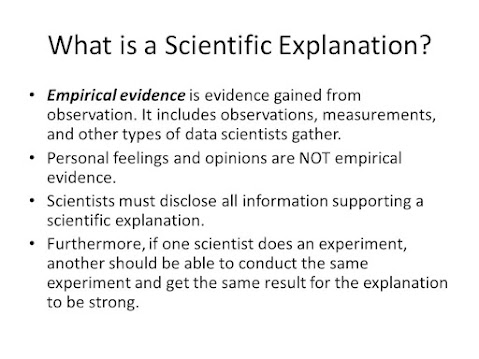PHILOSOPHICAL LEARNING AND SCIENTIFIC INVESTIGATION
What is philosophy? The word philosophy is come from ancient Greek word " Philosophia ". The word can explain as 'Philo" means love and 'Sophia' means wisdom. we can say the meaning of the word philosophy is love of wisdom. Further, Philosophy is the study fundamental nature of knowledge, reality, reasons, values, and existence. And also, it is a way of thinking about various subjects such as meaning, ethics, thought, value and time.
Scientific investigation helps us think outside the box to understand the natural world. Scientific investigation can be done by: Engaging in science-oriented questions that challenge thinking. Giving priority to evidence when responding to questions. Scientific investigation generally aims to obtain knowledge in the form of testable explanations that scientists can use to predict the results of future experiments.
Different between science and philosophy
Science is about empirical knowledge. philosophy is also about a priori knowledge. Science is about descriptive fact’s philosophy is also about normative truths. Science is about physical object’s philosophy is also about abstract objects.
philosophy is also about prior knowledge and science is about descriptive facts. philosophy is also about normative truths and science is about objects.
Learning is a complicated task. Learning to focus on a subject, to explain its theories, to understand, to question what is in it, to solve problems, to remember what is learned, to put it into practice. And it is the acquisition and mastery of what is already known by an individual. And its the extension and clarification of meaning of an individual experience.
PHILOSOPHICAL METHOD
Philosophical Method is simply, the study of the way to do philosophy. This method used by philosophers involving such elements as,
- Questioning
- Critical discussion
- Rational argumentations
- Systemic presentation
There is not a just one method to answer philosophical question because the answer is depending on the way of thinking.
VALUE OF PHILOSOPHY
like every different study, goals in general at knowledge. The knowledge it goals it is the type of knowledge which offers unity and system to the frame of the sciences, and the sort which ends up from a critical exam of the grounds of our convictions, prejudices, and beliefs.
Invention
An invention is a unique or novel device, method, composition or process. The invention process is a process within an overall engineering and product development process. It may be an improvement upon a machine or product or a new process for creating an object or a result.
Scientific investigation is a plan for asking questions and testing possible answers. A scientific investigation typically begins with observations. A hypothesis is a possible logical answer to a scientific question, based on scientific knowledge.
According to Invention I think this have two sides one is good Invention and Worst Invention. Good Invention we use for day-to-day life and they easy our works but Worst Invention destroy our things. Some of examples are,
- Weapons
- Trees cutting machines
- Smoking Device
THEORIES
The definition of a theory is an idea to explain something, or a set of guiding principles. Einstein's ideas about relativity are an example of the theory of relativity. The scientific principles of evolution that are used to explain human life are an example of the theory of evolution. Some of examples are,
- Big Bang Theory.
- Atomic Theory
- Quantum Field Theory.
My opinion is theory are same to the scientific statement. If we prove some statement it can be get as theory.
OBSERVATIONS
The definition of an observation is the act of noticing something or a judgment or inference from something seen or experienced. An example of observation is the watching of Haley's Comet. An example of observation is making the statement that a teacher is proficient from watching him teach several times.
I think observation is the important part of the Scientific investigation. Every scientific statement and Scientific testing all are start with observation.
HYPOTHESIS
A hypothesis is a specific statement of prediction. It describes in concrete (rather than theoretical) terms what you expect will happen in your study. For examples If you get at least 6 hours of sleep, you will do better on tests than if you get less sleep. If you drop a ball, it will fall toward the ground. If you drink coffee before going to bed, then it will take longer to fall asleep.
Hypothesis is an assumption that is made on the basis of some evidence. This is the initial point of any investigation that translates the research questions into a prediction. It includes components like variables, population and the relation between the variables. A research hypothesis is a hypothesis that is used to test the relationship between two or more variables.
If we have some problems or misunderstanding situation, we can make hypothesis and finding what happen after getting conclusions we can clearly understand problems.
- Making assumptions
- Stating the research and null hypotheses and selecting (setting) alpha
- Selecting the sampling distribution and specifying the test statistic
- Computing the test statistic
- Making a decision and interpreting the results







































